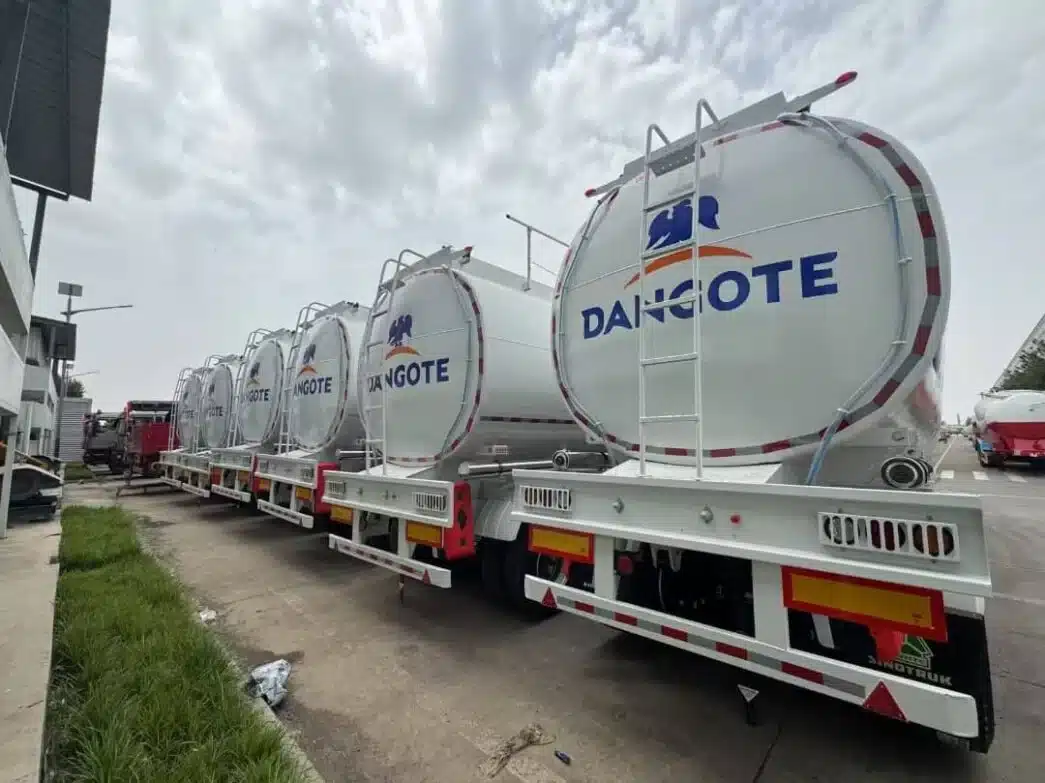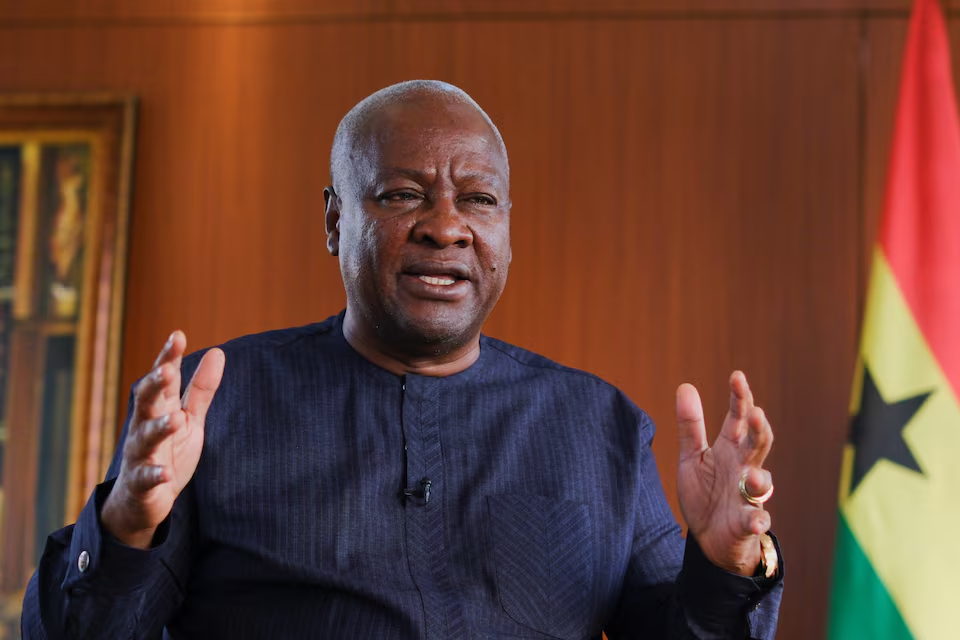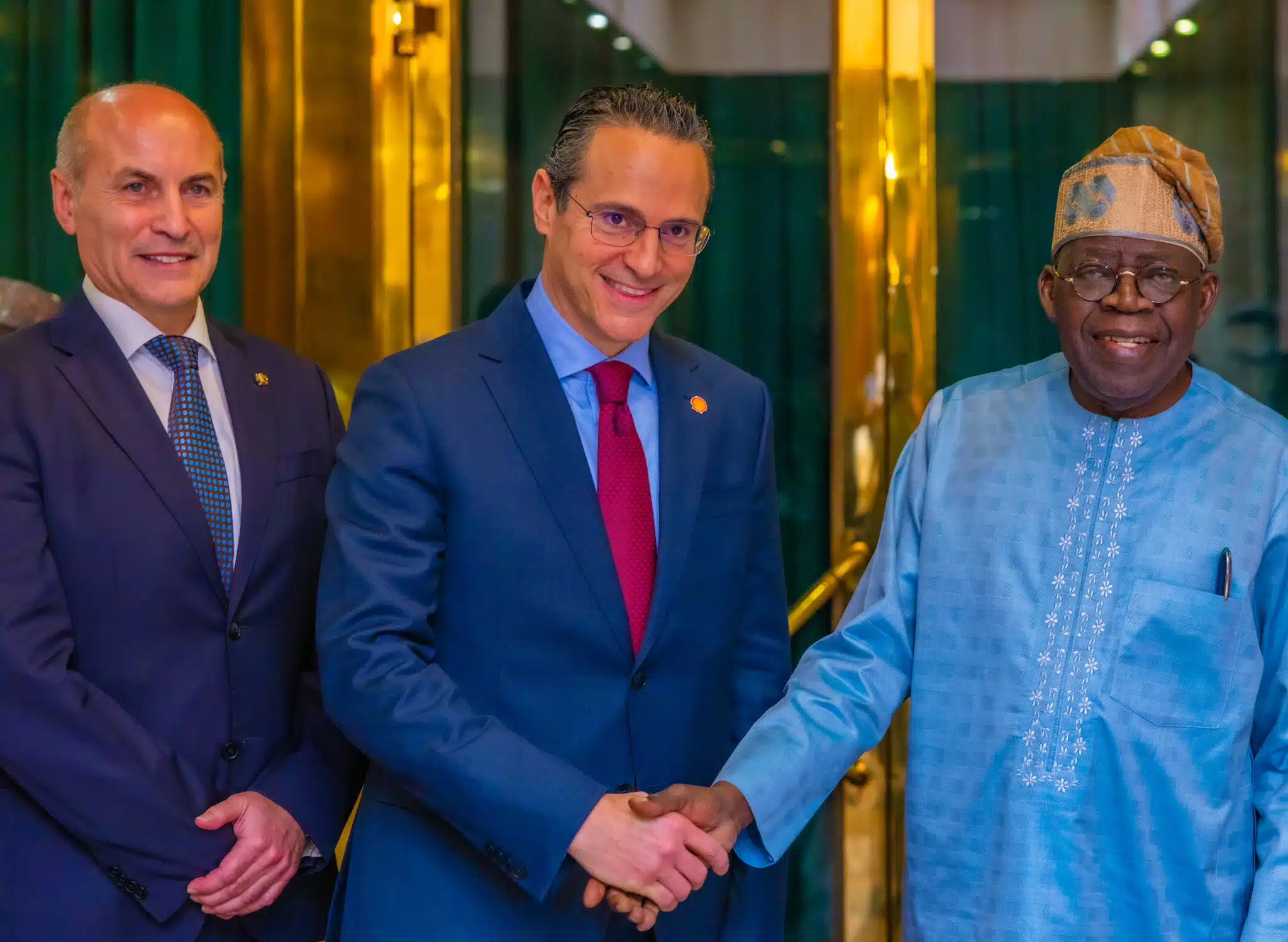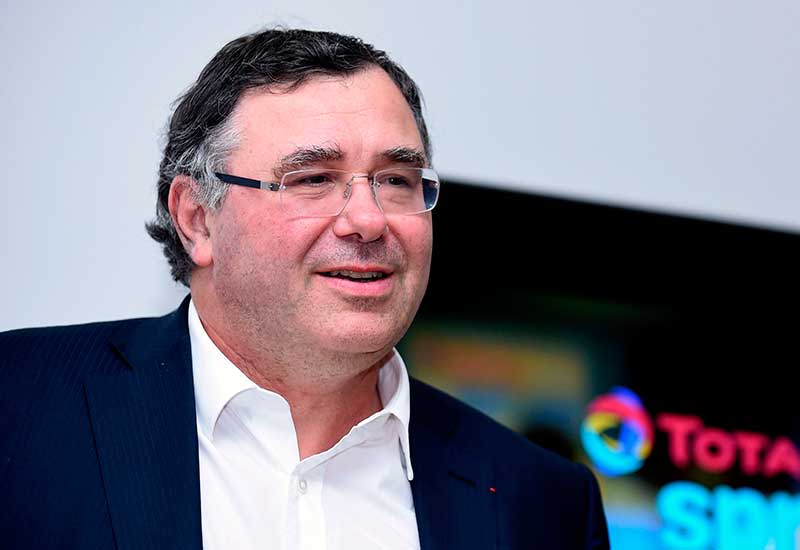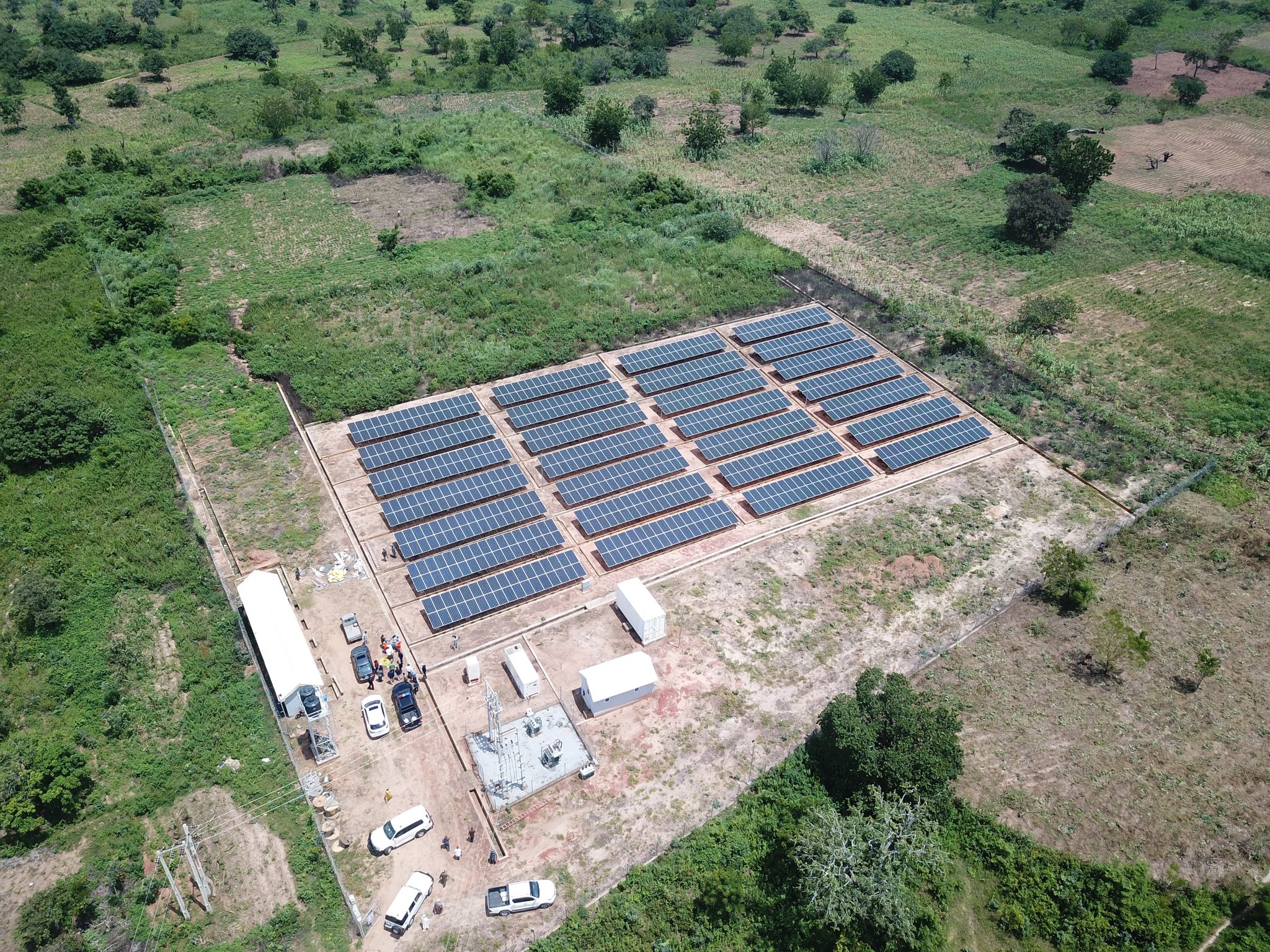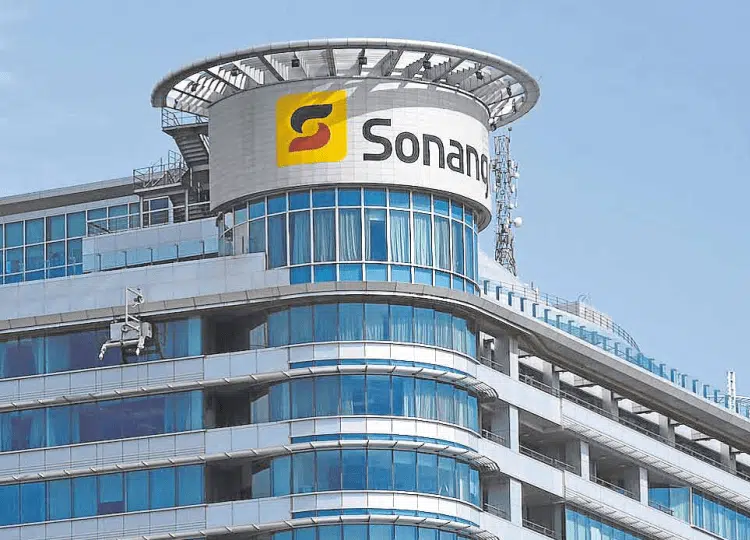Nigeria’s oil marketers, particularly under the Nigeria Union of Petroleum and Natural Gas Workers (NUPENG), are at loggerheads with the leadership of Dangote Refinery over distribution territories, with the union threatening a nationwide strike.
This dispute has been brewing since Dangote announced plans to purchase 4,000 CNG-powered trucks to supply fuel directly to retailers.
The trucks, worth about $470 million, would be the largest distribution fleet owned by a single company in Nigeria.
Unlike other countries that depend on pipelines and rail, Nigeria relies heavily on trucks for moving refined products across the country.
According to available statistics, Nigeria has a total fleet capacity of about 30,000 trucks transporting petrol, diesel, kerosene, LPG, and other commodities.
Before Dangote’s entry, the national oil company owned about 1,000 trucks, while other marketers collectively shared smaller fleets.
A market disruption in the making
Dangote’s entry with 4,000 CNG trucks could disrupt the market and put some marketers at risk. Most trucks in Nigeria run on costly diesel, which drives up operational expenses, while Dangote’s trucks will use cheaper, heavily subsidised CNG.
Nigeria consumes around 30 million liters of petrol daily, alongside millions of liters of other petroleum products—making logistics a huge cost factor.
For years, logistics differences have been a major source of marketers’ profit.
With average logistics costs estimated at N45 per liter—amounting to more than N1.07 trillion annually—Dangote’s move strikes at the very heart of their revenue stream.
The refinery had previously waived logistics costs for distributors, absorbing what it said amounted to about N1 trillion.
With such financial strength, Dangote can easily shoulder costs that smaller marketers with just a few trucks cannot match.
Beyond logistics, Dangote has also offered up to 500,000 liters of fuel on credit—repayable in two weeks—further widening the gap with other distributors and importers.
Accusations of monopoly
On Friday, NUPENG accused the refinery of “crude and dangerous anti-union practices, monopolistic agenda, and indecent industrial relations strategies.”
According to the union, “These practices represent not just an attack on petroleum workers, but a full-blown declaration of war against the Nigerian working class, trade unionism, and the principle of decent work.”
Marketers’ grievances are fueled by the fact that Dangote already enjoys a naira-for-crude arrangement with the federal government, allowing the refinery to purchase crude locally without the burden of scarce foreign exchange.
The refinery also earns in dollars from exports, boosting its margins even further.
In contrast, importers face multiple levies, duties, and fees when bringing in products, giving Dangote a clear advantage.
Still, some industry observers argue that claims of monopoly are exaggerated.
Nigeria operates on a willing-buyer, willing-seller model, and retailers are not compelled to buy Dangote’s products.
Price parity is also guided by international benchmarks, limiting the extent to which one player can dominate.
What lies ahead
Energy analyst Tolulope Awoyinka believes marketers now face tough choices: “Most marketers are left with the options to either consolidate their businesses, collaborate with Dangote to ensure seamless dealings, or ensure that their landing costs are lower than Dangote’s distribution cost.”
Jane Adegbite, a Lagos-based oil and gas analyst, added:
“It is impossible to monopolize the market provided that the price parity is equalized across the value chain.
“Such distortion will not happen since the price of petrol is determined by international Platts standards and the crude oil market.”
But there are risks for Dangote too.
By absorbing logistics costs, the refinery may eventually need to raise prices to cover operations, leaving room for importers to compete with cheaper alternatives.
For now, marketers have placed their union on “red alert” for a strike unless their concerns are addressed.
Local media report that the federal government is likely to intervene to prevent a sector-wide shutdown.
“The possible solution will be to protect the interest of both parties. It makes no sense to stop Dangote from investing in the downstream sector.
“However, a win-win solution would be to involve marketers in the investment and guarantee that their day-to-day activities are not disrupted,” said Adegbite.
The coming days will determine the outcome of this standoff.
For now, the future of Dangote’s $470 million truck investment and over 15,000 potential distribution jobs hangs in the balance as the showdown deepens.

